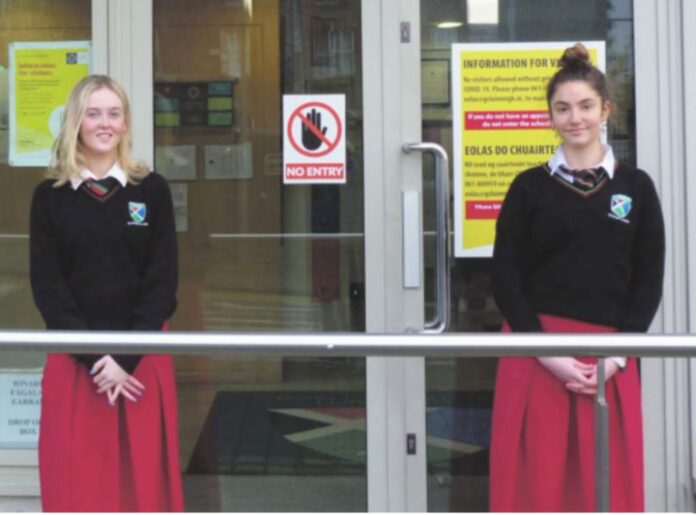
SEVENTY per cent of teenagers surveyed at a Limerick City secondary school say they have experienced sexual and street harassment.
Two Leaving Cert students at Gaelcholáiste Luimnigh, Rosa Ní Mheachair and Molly Ní Liostúin, have investigated sexual and street harassment as part of a school project on Politics and Society.
They gathered data from 309 senior cycle students on their experience of sexual and street harassment, which they began researching in August 2021.
And according to their findings, 70 per cent of students, aged between 15-18, who participated in the survey, say they have experienced sexual and street harassment in their day-to-day lives.
As part of the two Gaelcholáiste Luimnigh students’ methodology, a questionnaire was sent in December 2021 to senior cycle classes in order to gather data from their peers on this subject.
The main results of the survey showed that 70 per cent of 15-18 year olds have experienced sexual harassment and catcalling. While 77.6 per cent, it revealed, had someone make remarks that made them feel uncomfortable or unsafe.
A further 62 per cent had someone on the street make unwanted remarks about their appearance and 16.8 per cent reported experiencing sexual harassment weekly.
“We believe that having sexual and street harassment punishable by law would be a deterrent to those engaging in these behaviours in the first place.
“It shouldn’t happen in the first place, and society needs to be more educated about it but without effective intervention into this issue, we effectively normalise this behaviour through non-interference,” said Gaelcholáiste Luimnigh student Molly Ní Liostúin.
Of the 309 pupils surveyed there was a response rate of 62.5 per cent. Of the students who responded, 62.7 per cent identified as female, 33.7 per cent identified as male and 3.6 per cent identified as other. 52.3 per cent of respondents were aged between 15-16 while 47.7 per cent were aged between 17-18.
“Sexual harassment is currently against the law in the workplace under the Sexual Harassment and Irish Employment Equality Act and is also covered in recent image-based sexual harassment legislation. However, it is unclear to us what exactly the law is regarding experiencing and witnessing this behaviour in non-workplace settings. The use of ‘threatening and abusive language’ in a public place just doesn’t cut it in my book,” student researcher Rosa Ní Mheachair declared.
Both students agree that the results of their survey suggest a significant issue across society for young people. They believe that highlighting this issue, creating conversations about the inappropriateness of some of the behaviours and lobbying for law change will bring a benefit to society.
Rosa and Molly now plan to contact public representatives, both locally and nationally, alerting them to the results of their survey.
Executive Director of Rape Crisis Ireland Network (RCNI), Clíona Saidléar said that Rosa and Molly have highlighted yet again the appalling plight of sexual harassment and misogyny on young people’s lives.
“These two scholars have done what the Department of Education has not dared to do yet, which is to gather the data. The Department is out of excuses, they must gather this data and they must respond,” she added.


